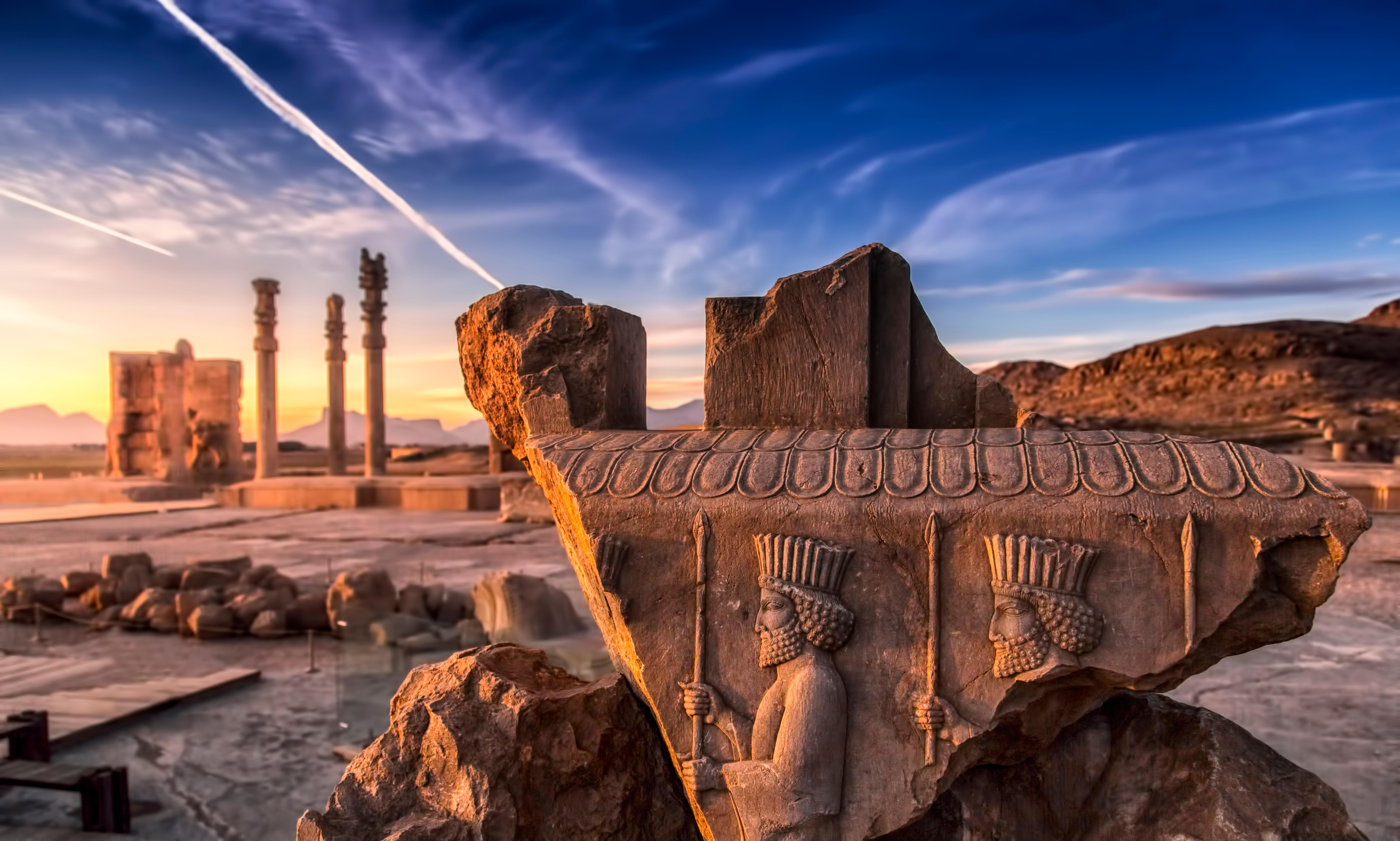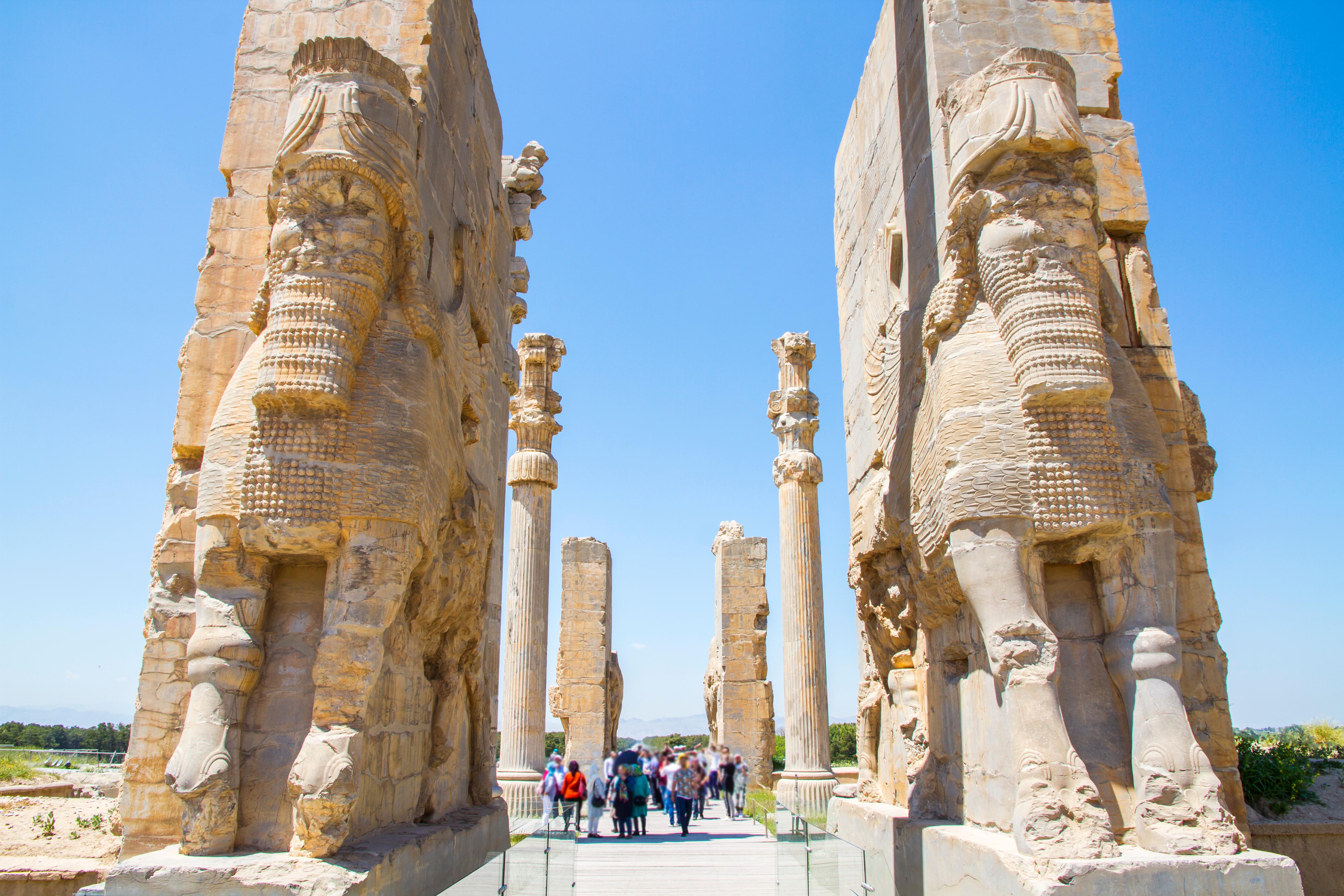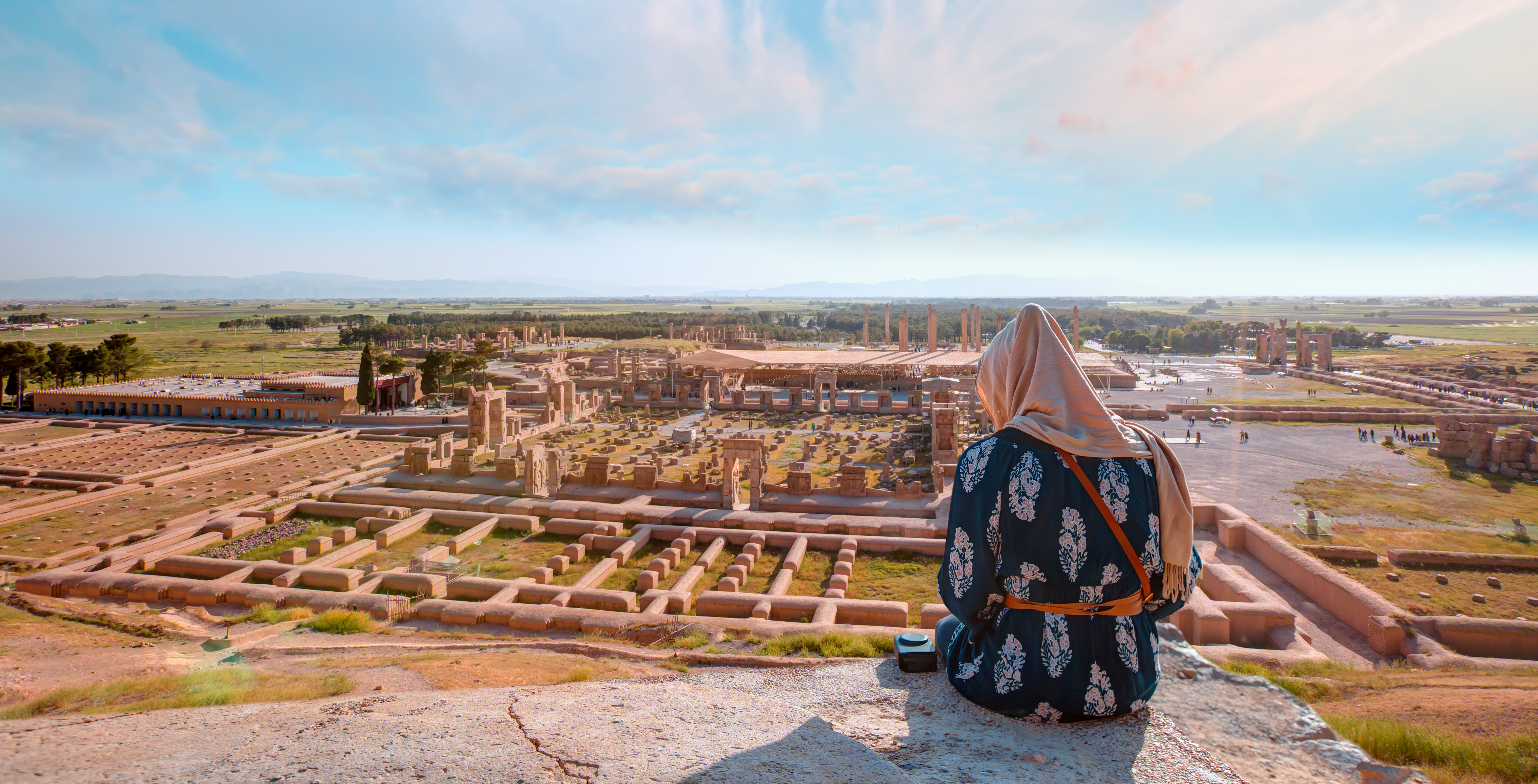Persepolis
It's believed that at the peak of the first Persian Empire, known as the Achaemenid Empire, it was the largest that had ever existed in the world until that point. Spreading across a vast swathe of land from Europe across Central Asia, it was ruled from its capital Persepolis, in what is now Iran.
Built during the Achaemenid Empire, the construction of Persepolis started around 518 BC and took over 100 years to complete, with enormous palaces, halls and other public buildings - along with everything that was needed to run a city. Although most of the site is now in ruins, there is enough here for you to get a sense of its grandeur and opulence.

The order to build the city came from Darius the Great but its construction spanned over the rule of many leaders, each one of them ordering new buildings in different areas of the city. Even though it was built to become the capital of the Achaemenid Empire, its location had difficult access for the time, turning Persepolis's palaces into a spring residence for the kings. At the time, Persepolis was a symbol of equity as women had the same work and voting rights as men.
After the end of the Achaemenid rule, the Sassanid rulers took over Persepolis. The city remained politically and economically important even during the Arab command. It was only around 10AD, with the rise of Shiraz, that Persepolis lost influence and was fully abandoned.

Aside from multiple ancient texts and reliefs, the site comprises three main attractions: The Gate of All Nations, Throne Hall, and Apadana Palace. The Gate of All Nations was ordered by Xerxes I and is one of the main parts of the city. The well-preserved columns impress visitors with their imposing height. Another construction ordered by Xerxes I was the Throne Hall. The construction served to honour the military conquests of the kings of Persia. It has multiple reliefs that depict war scenes and battles.
Finally, the Apadana Palace, the oldest construction of the city, was ordered by Darius I. This is the most luxurious part of the complex. Archaeologists found in there numerous animal sculptures and imported wooden structures, as well as golden and silver inscriptions honouring the king of kings, Darius I.

Persepolis was designated a World Heritage Site in 1979.
For the visitation of this site, it is recommended to arrive early as the hot sun can be excessive for many tourists. There is little to no shade in the site so be prepared to come with a hat or an umbrella. It is also advisable to hire a knowledgeable guide that can tell you the stories and legends of the site.
Persepolis
Summer time: 8AM to 8PM; Winter time: 8AM to 6PM
The entry cost is 200,000 Rials
